Events
Innovation Development in Lithuania
26 06 2023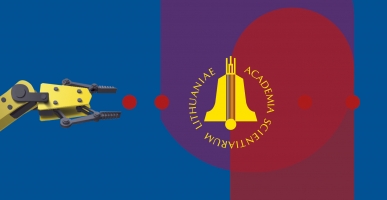
The general assembly of the Lithuanian Academy of Sciences, held on 20 June 2023, focused on the development of innovation and its challenges. Does innovation come from professionals trained in higher education, including PhDs? Is innovation taking root in business and industry? These were the topics, among others, discussed by representatives of research policy, entrepreneurship promoting institutions, entrepreneurs themselves, and representatives of their associations.
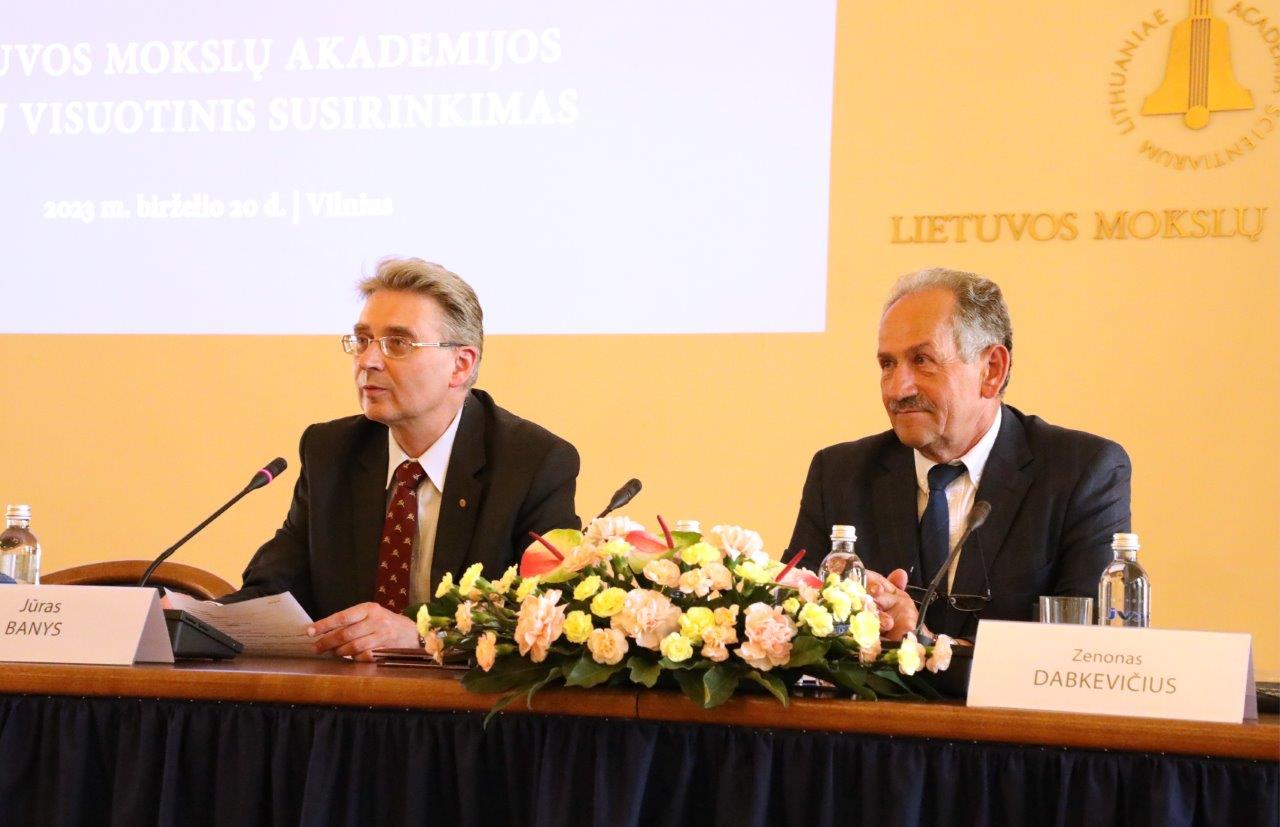
After quoting President of the Republic of Lithuania Gitanas Nausėda, who said in his annual report that science advisors were introduced in government institutions and that innovation would not develop without strong science, Prof. Jūras Banys, president of the Lithuanian Academy of Sciences, invited the first speaker to the podium.
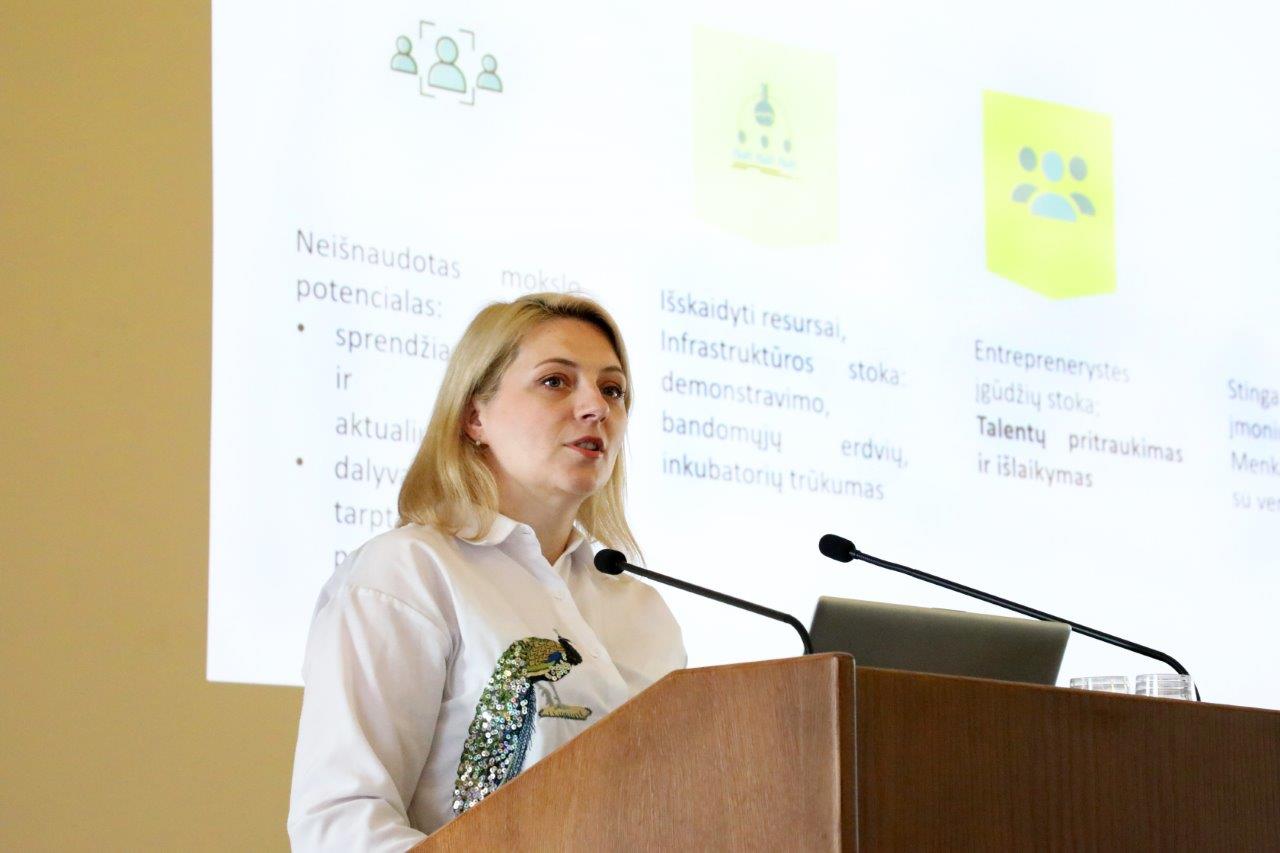
Rasa Kulvietienė, advisor to the Minister of Education, Science and Sport of the Republic of Lithuania, gave an overview of the challenges identified in the science development programme of the ministry and the measures to address them. These measures include a more favourable environment for talent, the involvement of young people in research activities, the innovative implementation of the functions of the Research Council of Lithuania, including the promotion of science-business cooperation, and the implementation of the above-mentioned institute of science and innovation advisors. The speaker pointed out that three missions were being carried out in cooperation with the Ministry of Economy and Innovation: Innovations for Health, Inclusive and Creative Society, and Smart and Climate Neutral Lithuania. Research and innovation will receive €267M from the structural funds of the European Union.
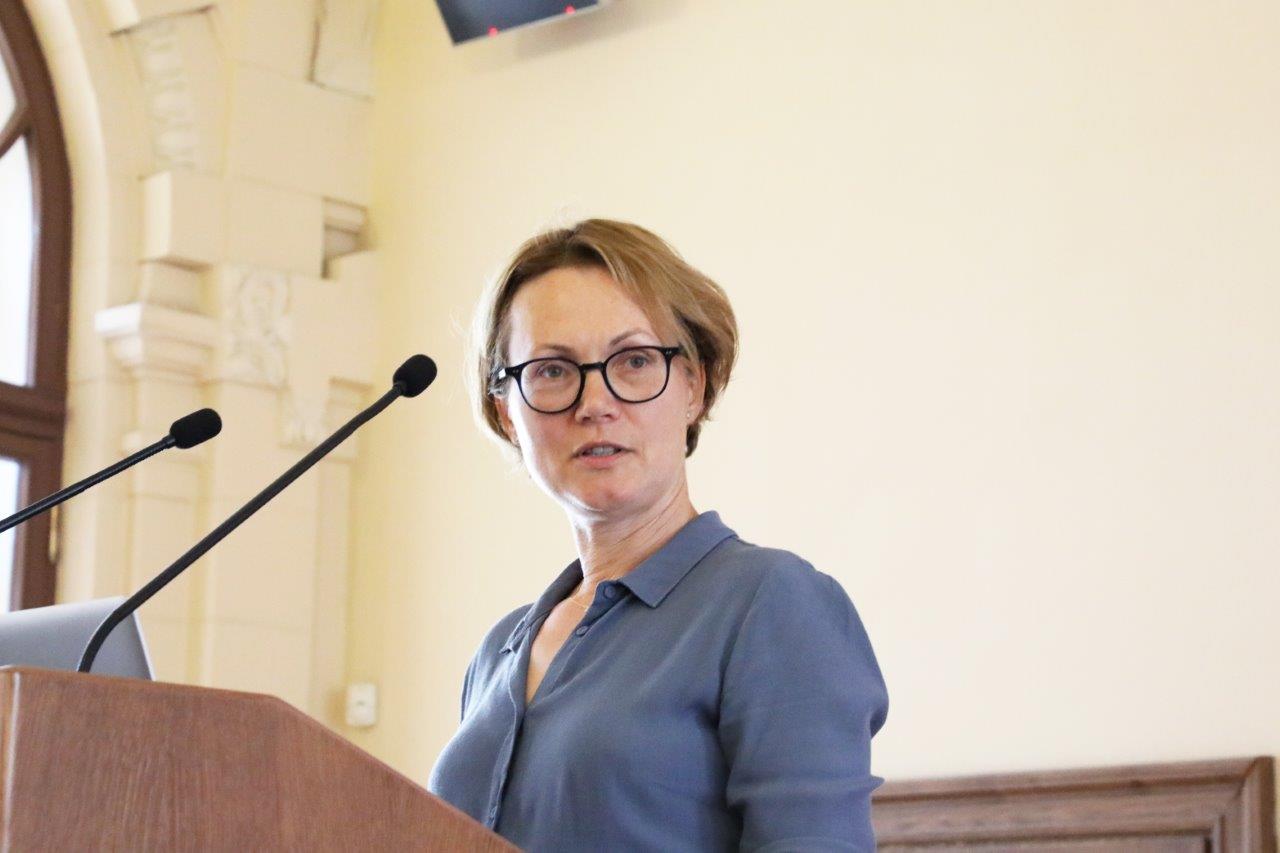
In her presentation ‘Promoting Cooperation, Innovation, Entrepreneurship and Exports of Lithuanian Business and Science’, Romualda Stragienė, director of the Innovation Agency established by the Ministry of Economy and Innovation, described the activities and perspectives of the new agency. The agency's mission is to grow globally competitive business in Lithuania on a one-stop shop basis. Three elements of the agency's vision have been formulated: (1) tripling private investment in research and experimental development (R&D), (2) achieving that the productivity of 50% of Lithuanian companies exceeds the average of the EU, and (3) doubling the share of high value-added products and services in the country's exports. Five strategic objectives and five breakthrough actions have been set to achieve them. The agency foresees support to clients at all stages of their maturity through available competences, contacts, and other measures. In total, €774M of investment is expected to be used to achieve the objectives, with services expected to reach 100,000 Lithuanian companies.
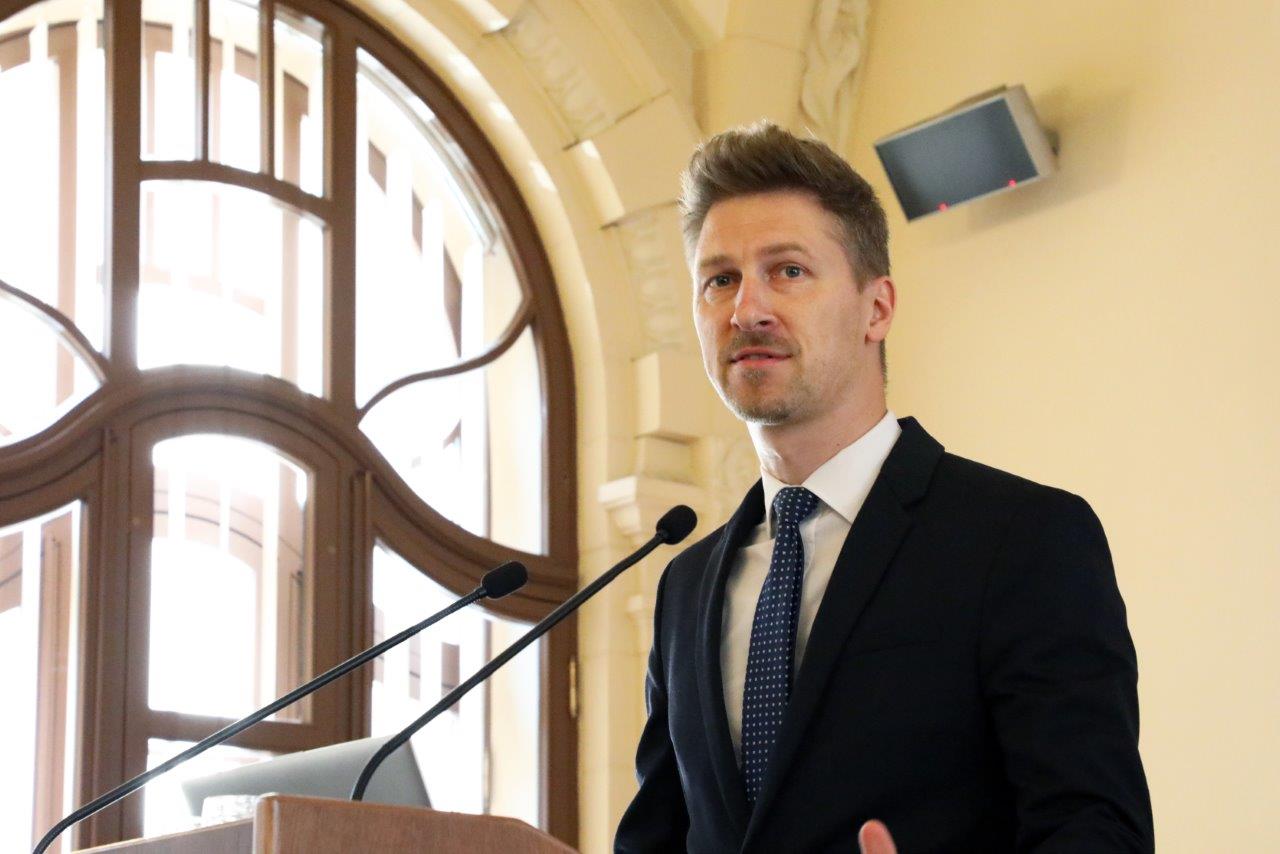
Ričardas Valančiauskas, director of the Innovation Department of the Ministry of Economy and Innovation, said that the EU innovation scoreboard is based on fairly objective criteria: it ranks Lithuania the 19th out of 27. Yet the positive trends are encouraging: we are among the five making the most progress. Business investment in research has grown by 10% in each recent year; investment in product or process innovation companies in Lithuania is improving. On the other hand, the relatively low number of foreign PhD students is a cause for concern, as is the unsuccessful allocation of non-state investment to as many as seven of Lithuania's selected areas of smart specialisation. The potential of STEAM is not exploited, and there is a need to improve the skills of labour market players and attract foreign talent.
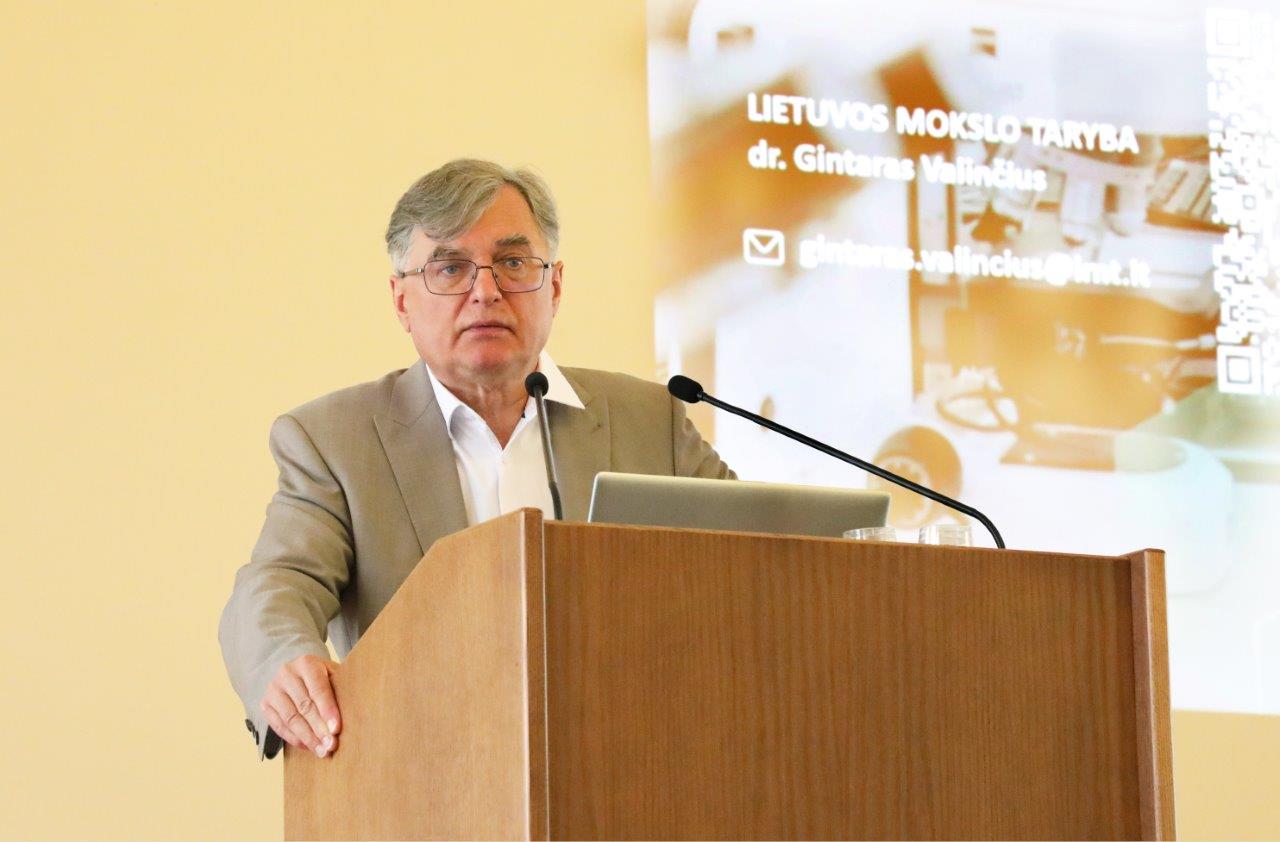
Prof. Dr Gintaras Valinčius, chair of the Research Council of Lithuania, delivered a presentation ‘Improving the Quality of Research and Increasing the Impact of Science on State Development’. The Research Council of Lithuania invests in young researchers, promotes cooperation between science and business, develops internationalisation, and strives to raise the quality standards of its work. It fully shares the view of Science Europe (a consortium of European science funding organisations) that Europe needs to move towards qualitative science assessment. Dr Valinčius identified a number of important new projects. These include education, cooperation between Lithuania and Taiwan, and the development of information and quantum technologies.
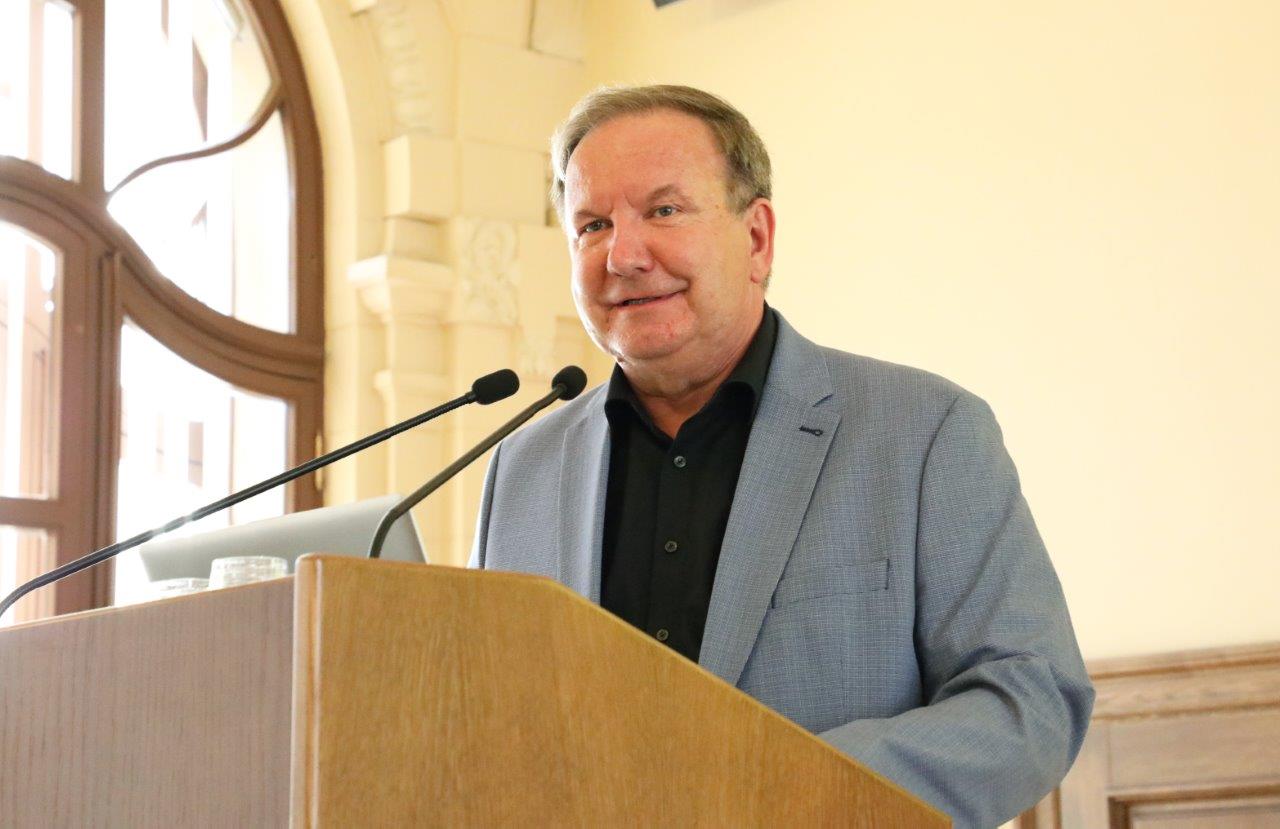
The leitmotif of the presentation by Dr Vytautas Jokužis, director general of UAB Elinta located in Kaunas Free Economic Zone – ‘The Need for Intelligence in the Fields of Manufacturing of Electronics and Automation of Technological Processes’ – is encoded in the company's name: electronics and intelligence. It is a group of as many as eight specialised companies. For instance, all the charging stations for electric cars on the island of Corsica are products of Elinta. The speaker expressed a regret that schools in Lithuania were becoming less and less capable of teaching exact subjects. They are the essential alphabet of the engineering sciences. Also, our scientists should be paid not 1.5 times the average (according to politicians), but twice the engineer's salary. Only then the best students will join the ranks of scientists. Dr Jokužis emphasised that science-business links are still weak and that the trends highlighted at the ‘Intersolar’ world exhibition are worrying: 80% of the latest technologies are developed in China, and a further 10% in German companies headed by the Chinese.
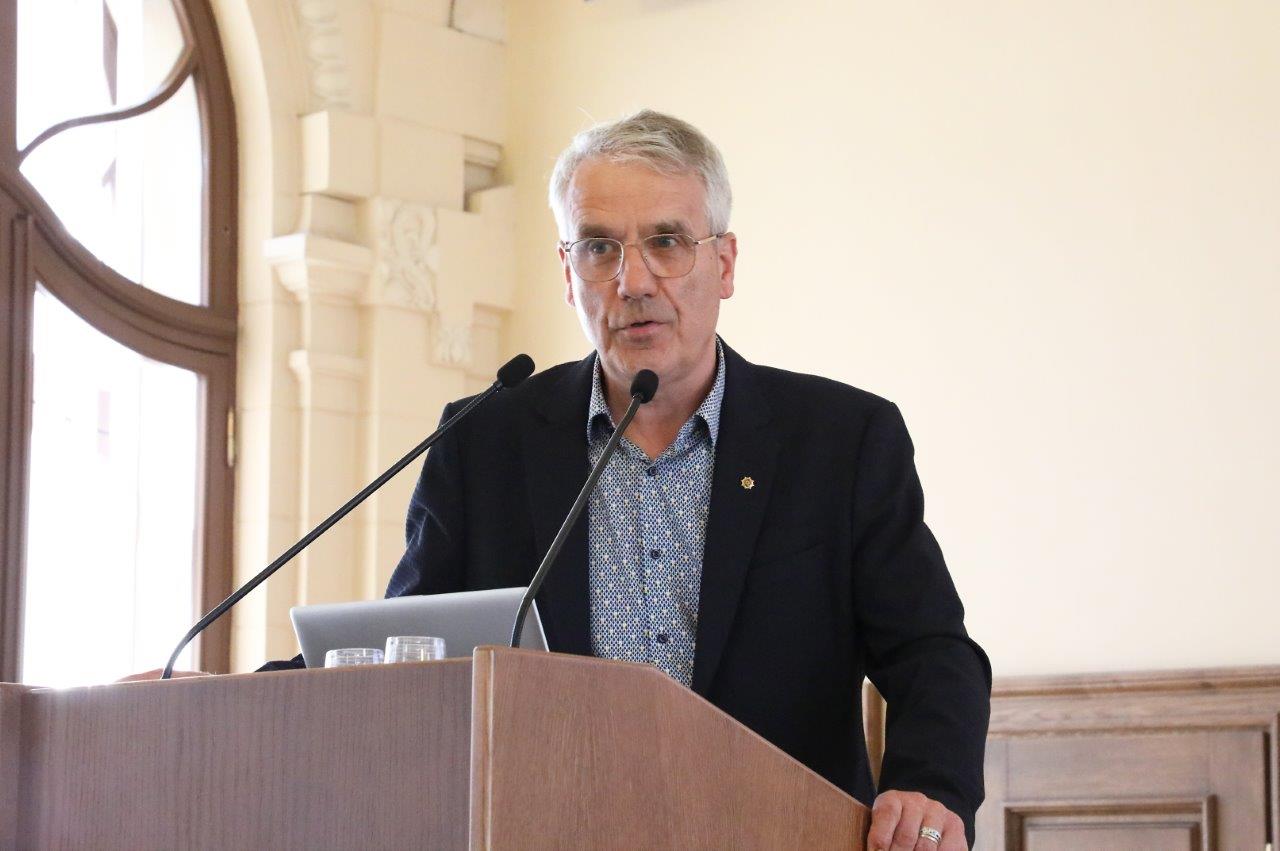
Danas Arlauskas, president of the Lithuanian Employers' Confederation, opened his presentation ‘What are the real opportunities for our country's small and medium-sized business sector to significantly increase the volume of innovation?’ by quoting Yuval Noah Harari, a renowned researcher and author of popular books: ‘It is not innovation, not technology, but personalities and a new attitude that will make countries competitive’. Innovation management is a decisive factor, and a sustainable innovation management model needs to be developed. According to the speaker, this would allow all three parts of the innovation chain ‘development-commercialisation-venture capital’ to work seamlessly. It is the scientists who must develop an innovation management model, as now this is the responsibility of officials. Innovation in small and medium-sized businesses, at the small local level, will not help us compete better on the international market and reach the European Union average faster. It is not institutions and not innovation ecosystems but innovations created by ‘garage guys’ – non-systemic agents – that really move things up. We need scientists – possibly, a group of scientists of the Lithuanian Academy of Sciences – to develop a good innovation management algorithm.
Prof. Banys supported Danas Arlauskas on innovation management and pointed out that very recently, the data on Lithuania's ‘respectable’ third place among ‘nanny states’ were announced: in some respects, we are too regulatory a country.
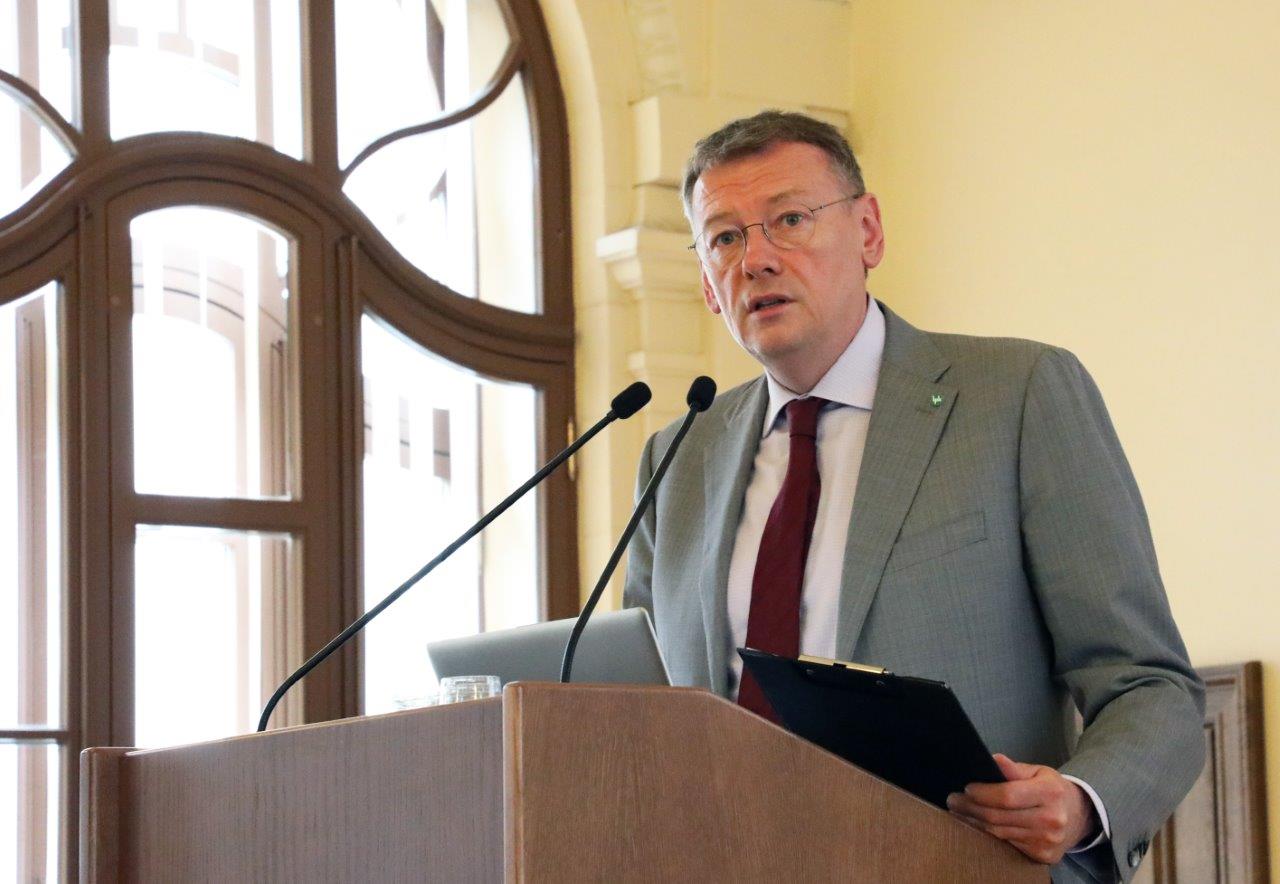
Vidmantas Janulevičius, president of the Lithuanian Confederation of Industrialists, stressed that the indicators come as a pleasant surprise: recently, the country's GDP and exports have been growing at an unprecedented rate, which could be a consequence of the long-lasting efforts in innovation management. From 2021, Lithuania started to overtake Poland, Latvia, and Estonia in terms of exports. Science, innovation, and technology are the drivers of competitiveness constantly highlighted by the European Commission (EC). However, the administration of these measures must be as simple as possible. Currently, the ‘Horizon’ programme outperforms national incentive tools in this respect. The new head of the Innovation Agency, who is familiar with the business world, is expected to offer the right levers for business and for all of us. For example, Japan, which, like the US, invests significantly more in R&D as a percentage of GDP than Europe, relies more on trust. In 2022, the EC pointed to business strengths in Lithuania: businesses in Lithuania spend 171% of the EU average on innovation. There are other positive trends as well. Lithuanian industry has not yet been ‘killed’ by growing competition, the energy war, and other challenges, including the challenge to develop robotics (where Europe is lagging behind the US and the US behind China) and artificial intelligence – AI (Industry 4.0), to integrate the circular economy, the green course, environmentally friendly development, the social dimension (Industry 5.0), and to meet the standards of the sixth industrial revolution. Industry 6.0 is based on highly interconnected production units focused on the individual consumer, operating in dynamic supply chains, and exchanging data between them. In such conditions, research institutions, technology developers and deployers, innovative start-ups, and high value-added industries need to interact in a precise and coordinated way. As we are preparing for Industry 6.0, we must strive to become niche producers capable of serving half a billion customers in Europe. An example of such a product could be footwear modelled with the help of the foot scanner developed by Elinta.
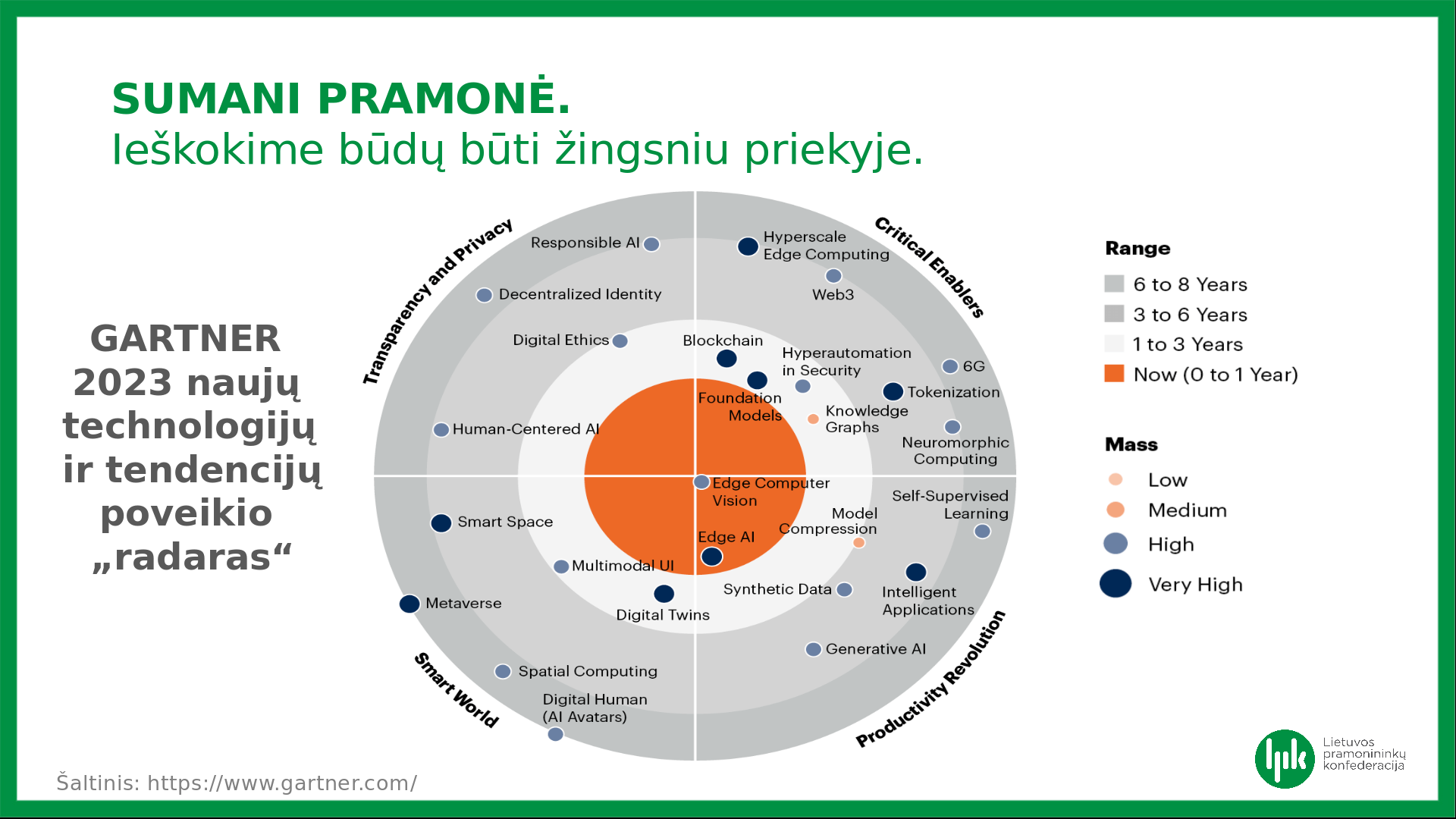
Our industrial strategy must be an industrial innovation strategy, and innovation must be part of policy making. The European Critical Raw Materials Act and the Industrial Climate Impact Neutralisation Act require essential conversion and effective scientific solutions in the search for new ways to save raw materials and spare the environment. It is expected that from 2025 onwards, 30% of the price of internal EU ‘green’ public procurement will be based on the CO2 component. Producers of the product with the smallest CO2 footprint will become sales leaders in billion-euro public tenders. That is why it is not only trendy but also worthwhile to become greener.
Vidmantas Janulevičius concluded by pointing out that we have not yet exploited the full potential of our hardworking and talented people. He also wished to continue the work launched to strengthen the innovation capacities of Lithuanian companies and the cooperation and internationalisation of the entire ecosystem of research and innovation. Reaching consensus and formulating consolidated and global challenges that require the involvement of all three partners – science, business, and policy makers.
Prepared by Dr Andrius Bernotas, head of the Organising Department of the Lithuanian Academy of Sciences
Photography by Virginija Valuckienė
Translated by Diana Barnard
